The Ministry of Defence recently published their Annual Report and Accounts 2017/18, let’s take a closer look at it.
The document aims to give a performance report, structured through 4 key objectives:
- Protect Our People
- Project Our Global Influence
- Promote Our Prosperity
- Manage the Department of State and the Defence Enterprise
The MoD’s success in fulfilling these objectives is assessed in the document. Following this, there is the accountability report, and finally the annual accounts record.
This article is part of an 8 part UK Defence Journal series on the MoDÂ Annual Report and Accounts. The full document can be found here.Â
In this 3rd article, I look at the National Security Objective ‘Project Our Global Influence’, and how the MoD has fulfilled it in the past year. The objective is defined as ‘reducing the likelihood of threats materialising and affecting the UK, our interests, and those of our allies and partners’ (SDSR 2015).
It is worth noting that I have been selective; I have not covered every ‘defence engagement’ listed in the MoD’s report.
Defence Engagement
Much of the success in projecting the UK’s influence comes from ‘defence engagement’. This includes a global network of 146 Defence Attachés around the world. It is also supplemented by foreign and liaison officers embedded within other countries’ defence operations.
This network continued to grow in 2017/18, including through establishing a resident Defence Attaché in Portugal. This move was widely thought to have been politically motivated as the UK approaches Brexit.
Another form of engagement is ‘International Defence Training’. It should be noted that UK delivered training is highly sought after. Indeed in some fields such as bomb disposal, the UK is widely accepted to be the world leader. On the British Army’s website, one can browse the wide range of disciplines that the UK can and does train foreign personnel in, from a Mortar Platoon Commander Course, to a course in Artillery Fire Support. The Royal Navy also has a similar page.
Training can be delivered at UK military bases, as advertised online, or abroad, as done as part of Operation Shader in Iraq. The number of International Defence Training places based in the UK is rising, from around 1,400 in 2015 to over 2,200 in 2017.
NATO
The UK has been the driving force behind ensuring that NATO has an efficient command structure that could operate at short notice, coordinating personnel from across the alliance. As a result, in the past year the UK has overseen changes and reforms to the NATO operational command structure. These changes will be reported on in November 2018 at a meeting of Defence Ministers.
The MoD report states ‘The UK co-authored a letter with the US encouraging NATO to progress command structure reform’, although it would appear this letter is not in the public domain.Â
European Union
‘Work to get an agreed policy position on our desired end state for the external security partnership has also been ongoing. This reflects the Prime Minister’s clear direction that, whilst we are leaving the European Union, we are not leaving Europe’
MoD Annual Report
It would appear much of the MoD’s effort towards the EU in the past year has been to ensure the European continent remains strong post-Brexit. This includes work through Defence Attachés, but also operations.
The UK has operated alongside France in Iraq, but also in Mali and Estonia. In the Indian Ocean, Royal Navy and Royal Marines personnel completed a five month deployment aboard the French amphibious assault ship FS Mistral.
While still a member of the EU, the UK has continued to commit to Operation Sophia, the EU mission to counter human smuggling routes in the Mediterranean.
Leaving Rome today after 6 mo as UK Senior Nat Rep to @EUNAVFORMED_OHQ. Proud of what our people and @HMS_Echo are achieving. Signif Intel gained, human traffickers passed to law enforcement, smuggling disrupted. Illegal migration down by 70%. Thousands of lives saved. pic.twitter.com/g77cAOzhx6
— Kevin Rowlands (@c21st_sailor) March 16, 2018
United Nations
In 2017/18, the UK achieved it’s SDSR 2015 commitment to double the number of military personnel deployed on UN peacekeeping operations. Deployments in South Sudan and Somalia brought the UK contribution from 300 personnel to 720.
‘The UK deployment to the UN Mission in South Sudan, of around 380 engineering and medical personnel, makes it one of the largest Defence deployments globally’
MoD Annual Report on UN Peacekeeping
In November 2017, the UK co-hosted a UN Peacekeeping meeting in Vancouver, uniting more than 550 delegates from 79 countries and five NGOs. At the meeting, 48 delegations made new peacekeeping pledges, including the UK pledging to extend its South Sudan deployment until April 2020.
Arms Control and Counter Proliferation
The MoD operates under the National Counter Proliferation Strategy (found here), and contributes in particular through the provision of scientific and technical expertise.
More noticeably, the MoD has worked alongside the Foreign Office and international partners to destroy ‘Syria’s entire chemical weapons programme’. This was acted upon in April when the US, France, and the UK launched strikes against Syrian chemical weapons facilities.
The MoD provided expertise to the police investigation into the use of a nerve agent against the Skripals in Salisbury. The Defence Scientific and Technology Laboratory at Porton Down also analysed samples, and this analysis was instrumental in advising the government as to its response.
USA
The defence relationship with the USA remains ‘fundamental to our shared national and international interests’.
The first deployment of HMS Queen Elizabeth will see 6 USMC F-35Bs operate alongside UK F-35Bs. Planning for this joint deployment is at ‘an advanced stage’.
In 2017/18, the UK signed Foreign Military Sales (FMS) agreements with the US on multiple occasions, including:
- C17 Support ($301M)
- Hellfire for Reaper ($132M)
- P-8A Training Aids ($80M)
- F35 Countermeasures ($28M)
Asia Pacific
Both HMS Sutherland and HMS Albion have been deployed to the region in the past year, conducting a wide variety of visits.
.@HMSSutherland is in Pyongtaek, South Korea, welcoming politicians, diplomats & military leaders onboard #DefenceDiplomacy pic.twitter.com/Pto8XQhxZU
— Navy Lookout (@NavyLookout) May 15, 2018
Sutherland also took part in a series of exercises with the Japanese Maritime Self Defence Force (JMSDF). These included co-ordinated manoeuvres, a replenishment at sea, a boarding exercise, and an advanced anti-submarine serial.
The Asia Pacific is, as the report puts it, ‘a continually evolving geopolitical environment’, and the exercises affirmed the UK’s support for Japan’s new, more proactive global role.
South Asia
The defence relationship between the UK and India has appeared somewhat quiet in the past year, despite the UK-India Defence and International Security Partnership being signed in 2015. Nonetheless, the report confirms that land, air, and maritime exercises are all planned between the two nations for 2018/19.
In Nepal, the UK have provided Counter Improvised Explosive Device training, as well as ensuring Nepal remain a contributor to UN Peacekeeping Operations.
Latin America and the Caribbean
The British Army Training Support Unit Belize (BATSUB) is manned by 12 permanent UK staff and employs more than 100 local civilians. It hosts around 5 exercises per year. This continued in 2017/18.
‘Strategic Defence Dialogue’ was held with Argentina for the first time since 2006. Alongside this, the UK took part in the search for the missing Argentine submarine ARA San Juan. This included HMS Protector, as well as RAF Hercules and Voyager aircraft.
The UK’s definition of projecting its global influence is deliberately expansive. The report shows the UK operating around the world to ensure peace and stability.
What is noteworthy however is in many cases, the work the MoD does fulfilling this objective does not directly benefit the UK itself, but rather benefits regional partners.
The best example of this is the huge amount of work the MoD put in to International Defence Training. In some cases (training the Iraqi Security Forces to defeat Da’esh) this may benefit the UK. But, in others cases (training the Nepalese Armed Forces how to diffuse explosive devices) it is merely done to share expertise.
I would conclude that in 2017/18, the MoD remained successful in its objective to ‘Project Our Global Influence’. In the coming days, I will publish my 4th article, assessing how the MoD fulfils its objective to ‘Promote Our Prosperity’.



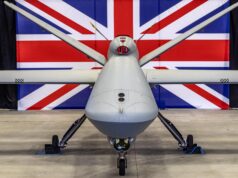
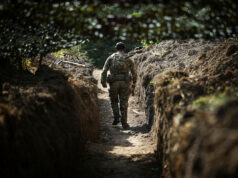
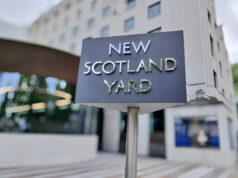


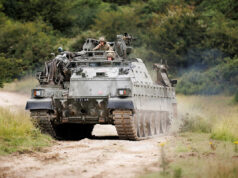
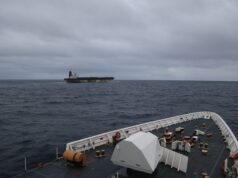


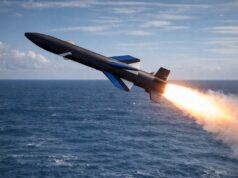

This is what Britain does best. Using a combination of the Royal Navy, Union Jack and the embassy network has reaped millions in past trade. As part of ‘Global Britain’ programme, I feel a Royal Yacht is an essential component for reaching out to potential customers and partners. Though the mischievous press would use a small percentage of emotive public opinion’ in an attempt to ruin such a plan. Those voices and tactics need to be sidelined. A floating ‘Mini Britain’ would prove priceless over its lifetime just as the former HMS Britania did.
I will repeat my thoughts on naval expansion, the Royal Navy needs more vessels, to enable far greater reach and stationing.
Agree!